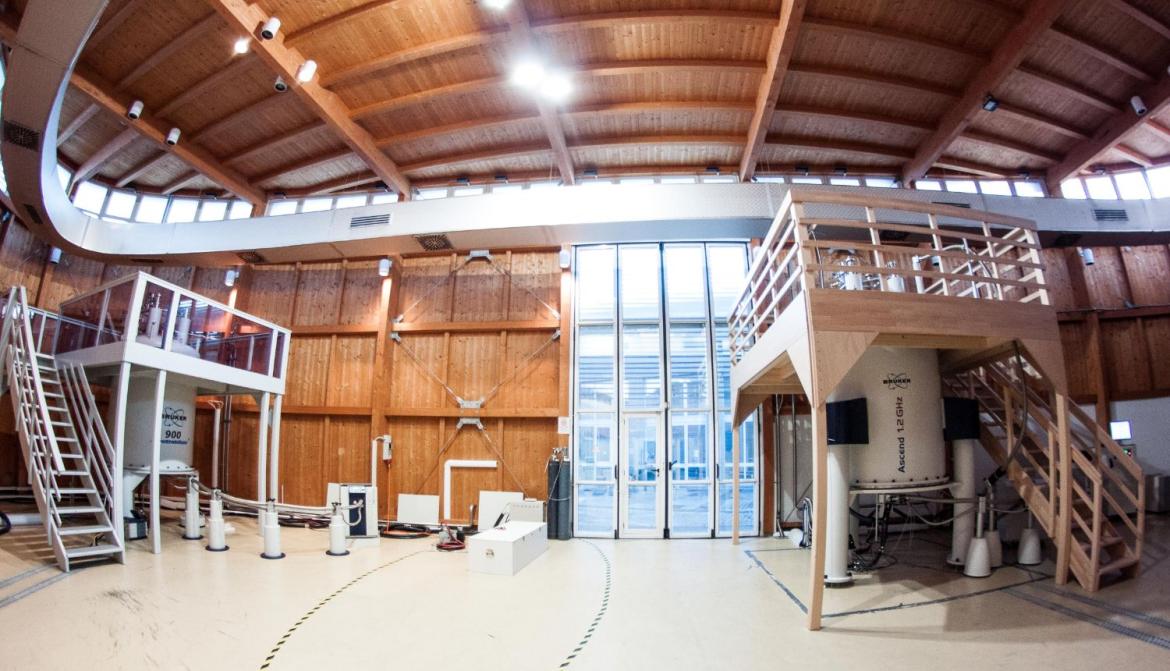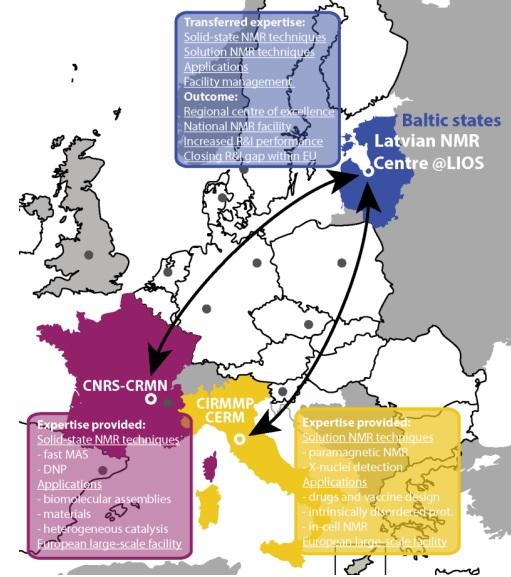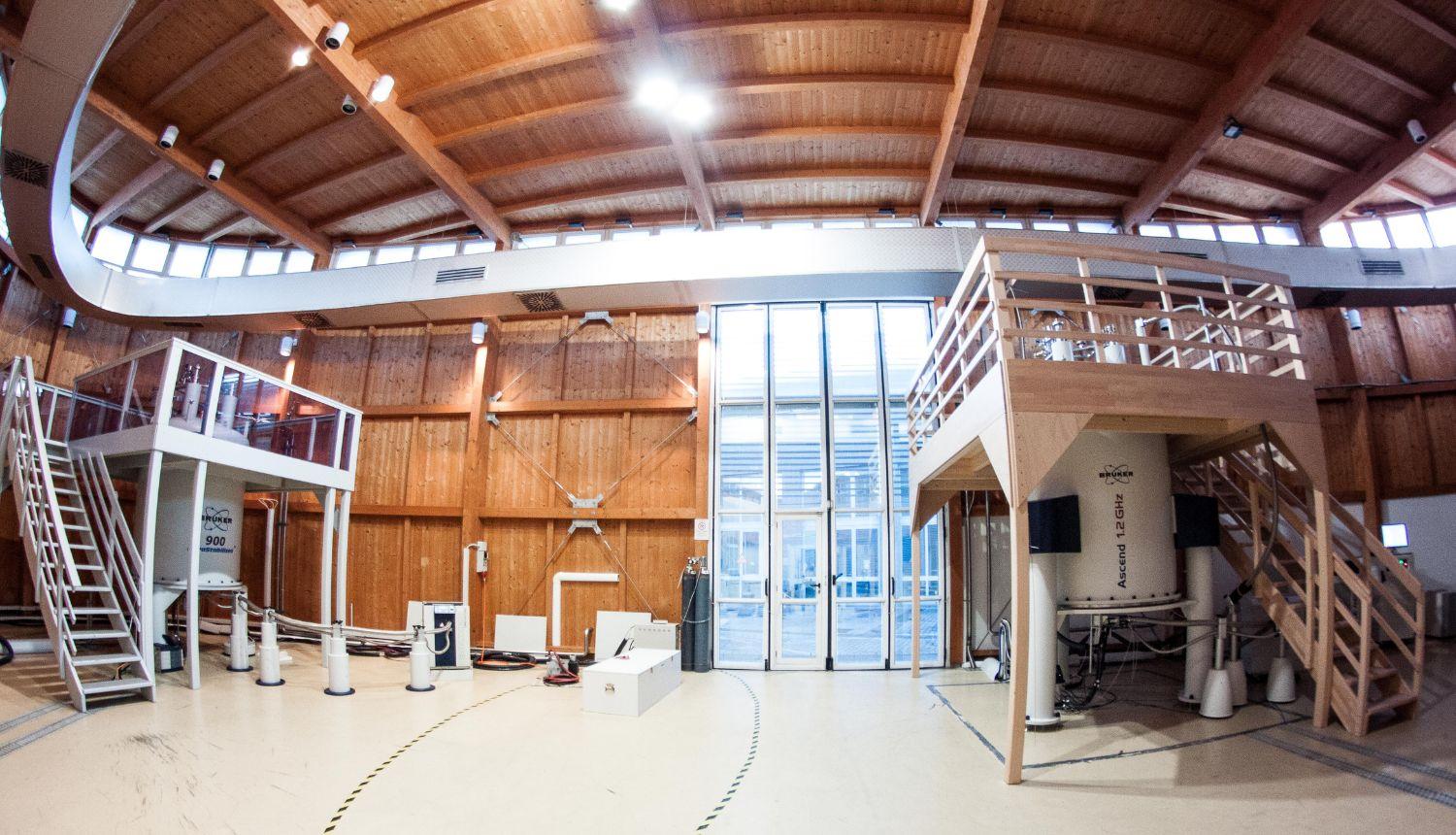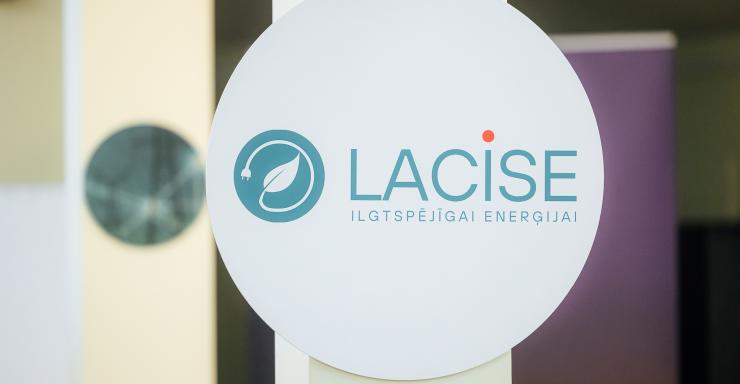Today, September 16, marks one year since the first meeting of Latvian, French, and Italian partners in Riga, which launched the ambitious “MR LATVIA” project to establish the Latvian Centre for Nuclear Magnetic Resonance (NMR) spectroscopy centre in Latvia. Over the next two years, the Latvian Institute of Organic Synthesis (LIOS), one of the project’s key participants, will establish the largest nuclear magnetic resonance centre in the Baltics.

In partnership with leading European NMR centres - the CRMN in Lyon, France, and CERM/CIRMMP in Florence, Italy - LIOS is implementing the “Development of Magnetic Resonance in Latvia (MR LATVIA)” project with funding from the prestigious European HORIZON WIDERA program. This initiative aims to enhance the region’s research capacity and strengthen Latvia’s role as a leading NMR centre in the Baltic region.
The centres in Lyon and Florence are globally recognised leaders in NMR research. Their expertise will provide a vital foundation for the development of Latvia’s future centre and for advancing NMR capabilities across the Baltics.
What is NMR Spectroscopy and Why is the NMR Centre Being Developed at the LIOS?
PhD Alons Lends, Head of the NMR Centre, highlights the importance of these technologies for modern science: "Nuclear magnetic resonance spectroscopy allows us to study the structure and dynamics of substances at the atomic level. It is a critical step in discovering and investigating new pharmaceuticals. Much like an MRI scan gives doctors a precise understanding of the human body’s condition, NMR spectroscopy enables scientists to understand how drugs interact with their biological targets."
Year One: Major Achievements and International Collaboration
In the first year of the project, exchanging experiences and adopting best practices were priorities. Current and future experts participated in leading European conferences such as EUROMAR 2025, international seminars, webinars, as well as the summer school “Panacea Week 2025” (Lyon, France) and ITACA SB School (Florence, Italy).
PhD Alons Lends emphasises: "The first-year activities of MR LATVIA have facilitated knowledge exchange, capacity building, and the integration of new insights into Latvian research. They have also allowed doctoral students to take their first steps in the world of NMR."
Ambitious Future Plans for the “MR LATVIA” Project
The long-term vision of MR LATVIA is to establish LIOS as an internationally recognised NMR centre of excellence, specialising in innovative technologies and spanning a wide range of R&D applications. In spring 2026, MR LATVIA will launch a call to provide free access to its NMR infrastructure for researchers and entrepreneurs across the Baltics, fostering knowledge transfer and driving innovation throughout the region. All calls and updated news will be available on our website: http://mrlatvia.osi.lv.
International partners stress that collaboration is essential not only for advancing methodologies but also for expanding access to cutting-edge NMR technologies in the Baltics – contributing to the strength of the European scientific community.
Project coordinator, PhD Alons Lends concludes: "MR LATVIA has already gained strong momentum thanks to the active involvement of dynamic researchers and doctoral students. In the next phase, our main priorities will be to ensure free access and training to our facilities for Baltic States researchers and entrepreneurs, while still conducting NMR-based research. We invite everyone to follow our progress and seize this unique opportunity to shape the future of Baltic science and innovation together."



